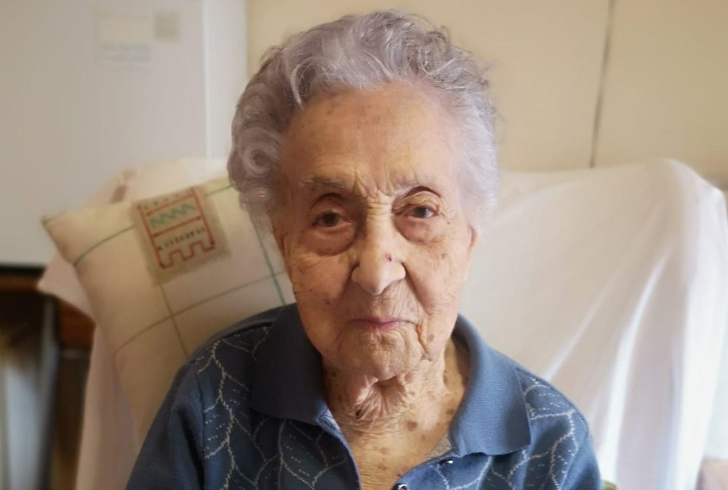Longevity has fascinated researchers for decades. Scientists study genetics, diet, and lifestyle to understand why some people live much longer than others. A recent study examined the life of Maria Branyas Morera, who lived to be 117.
Her gut health, genes, and habits all contributed to her remarkable lifespan. This research provides valuable lessons for anyone seeking a longer, healthier life.
A Remarkably Youthful Body at 117
Despite her age, Morera’s body functioned as if she were decades younger. Scientists analyzed her genetic activity and gut microbiome. They found that her body showed lower signs of aging than expected. Her gut contained high levels of beneficial bacteria, reducing inflammation and supporting immunity.

Her genes also revealed a lower risk of heart disease and cancer. She maintained healthy cholesterol and triglyceride levels. This protected her from cardiovascular disease, a leading cause of death worldwide.
The Role of Gut Health in Longevity
Scientists have long linked gut health to overall well-being. Morera’s microbiome was rich in Bifidobacterium, a bacteria type that promotes digestion and lowers inflammation. Experts believe this helped keep her body youthful.
A well-balanced gut microbiome supports:
1. Metabolism – Enhances nutrient absorption and energy production.
2. Inflammation Control – Lowers chronic inflammation, a key factor in aging.
3. Cognitive Function – Protects brain health and reduces cognitive decline.
4. Bone and Muscle Strength – Helps prevent frailty in old age.
Lifestyle Habits That Contributed to Her Longevity
Morera credited her long life to simple but effective habits. She emphasized the importance of avoiding stress. She also believed in staying away from negative influences.
Her daily routine included:
1. Eating a diet rich in fruits, vegetables, and probiotics. She consumed yogurt three times a day.
2. Walking regularly to stay active.
3. Avoiding alcohol and smoking. Both are known to accelerate aging.
These habits mirror those found in Blue Zones, regions where people live much longer than average.
The Science Behind Her Youthful Genes
Genetic analysis showed that Morera’s DNA methylation patterns were unique. DNA methylation, a biological process linked to aging, affects how genes are expressed over time. Her patterns suggested a significantly lower biological age, meaning her cells functioned much younger than expected.
This discovery aligns with emerging research indicating that aging isn’t solely determined by genetics but can be influenced by lifestyle choices. A balanced diet, regular exercise, and a healthy gut microbiome can contribute to slower biological aging, supporting overall longevity.
What This Means for the Future of Aging Research

While Morera’s case provides valuable insights, researchers acknowledge that longevity is influenced by a combination of genetics, environment, and lifestyle. Her ability to maintain youthful biological markers at such an advanced age challenges the idea that aging and declining health are inevitable.
This study reinforces the importance of gut health in promoting longevity and preventing age-related diseases. As scientists continue to explore the link between the microbiome and aging, these findings could lead to new approaches for improving health and extending lifespan.
How to Live a Longer, Healthier Life
Morera’s life offers practical lessons for anyone looking to improve their well-being:
1. Prioritize gut health by consuming fiber-rich foods and probiotics.
2. Stay physically active to maintain cardiovascular and metabolic health.
3. Manage stress and cultivate positive relationships for emotional balance.
4. Avoid harmful habits such as smoking and excessive alcohol consumption.
Her extraordinary lifespan serves as a testament to the power of healthy living. While genetics play a role, the choices made every day can significantly impact how the body ages, providing a foundation for a longer, healthier life.




